Neath Abbey Ironworks drawings bought by archive
- Published
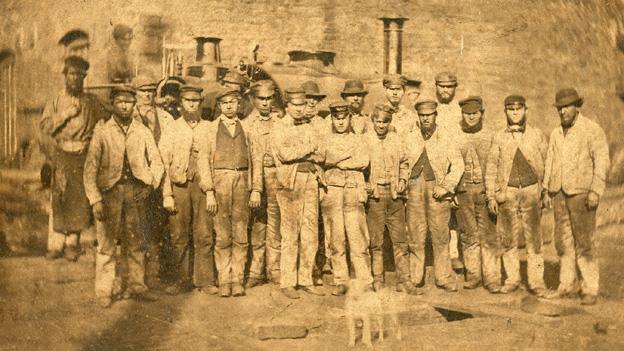
Neath Abbey Ironworks and workers, possibly taken around 1870. The engine in the background is works locomotive Plymouth
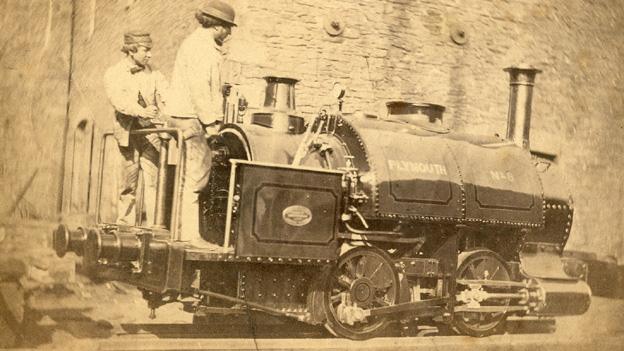
The works were in business until 1875 and then, after an attempted revival, closed for the last time around 1885
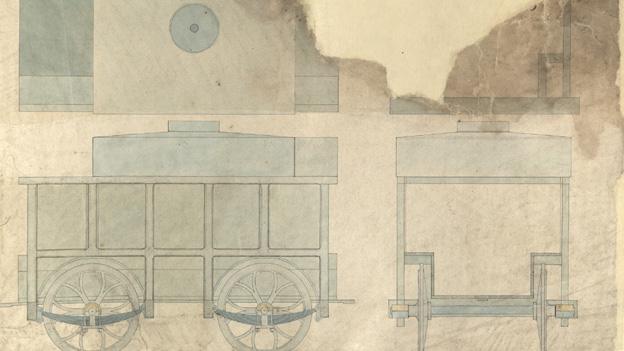
A design for a locomotive for Nantyglo Ironworks, Monmouthshire, 1854
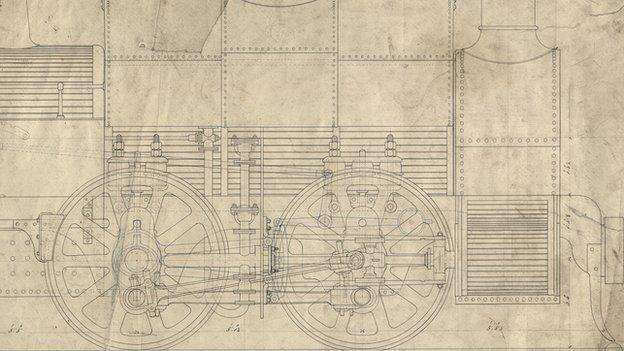
A design for a locomotive for Nantyglo Ironworks, Monmouthshire, 1854
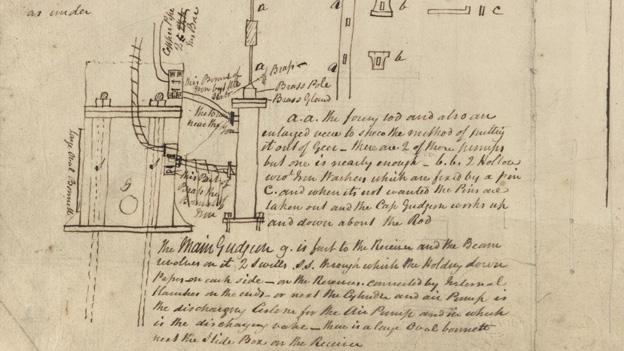
Notes on the mechanics of the cross-channel steam vessel Arrow, written in Dover by a Neath Abbey Ironworks worker in 1822. This is possibly an early example of industrial espionage
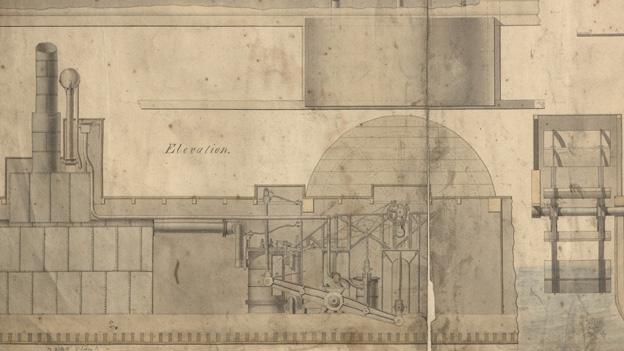
Engineering drawing for the engines for the Ancient Briton - a Bristol and Swansea steam packet dating from 1822
Thousands of engineering drawings from an ironworks dating back more than 200 years have been bought by the West Glamorgan Archive.
Neath Abbey Ironworks made steam locomotives in the early days of the railways as well as ship and mine engines.
The archive was given first refusal to buy the collection.
Archivist Kim Collis said: "It is a rare survival from across a large time period of the industrial revolution."
The foundry was built in 1792 and leased to the Quaker firm of Fox and Company, which was based in Falmouth, Cornwall.
The ironworks' heyday coincided with the development of the railways and steamships - and the opening up of the coalfields across south Wales.
Swansea and Neath also became important world centres for metals.
The ironworks produced locomotives, ship engines, machinery for gas works and pumping and winding engines for mines until it finally closed in the mid 1880s.
The collection includes more than 8,000 engineering drawings for work dating back to the late 18th Century.
Ms Collis added: "While much of the trade was local to south Wales, orders came in not only from the rest of the United Kingdom but also for mining operations in Mexico and South America, reflecting the growth of British entrepreneurship in the western hemisphere."
She said the plans were detailed and finely drawn and would be an "invaluable resource" for people interested in the techniques of manufacturing and mining - and also transport and industrial history.
"The level of care taken in their execution reflects high standards of workmanship for which the foundry had a reputation," said Ms Collis.
The collection had been on deposit at the Swansea-based archive for more than two decades but the owner decided he wanted to sell.
- Published14 July 2013
- Published15 February 2012
- Published11 June 2012